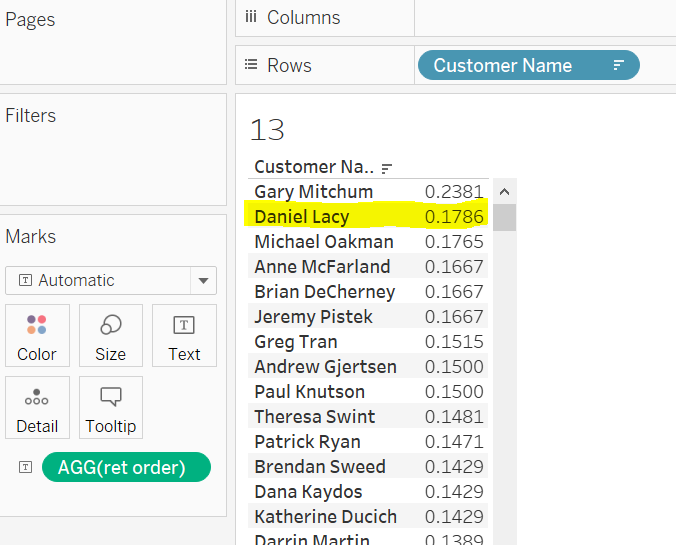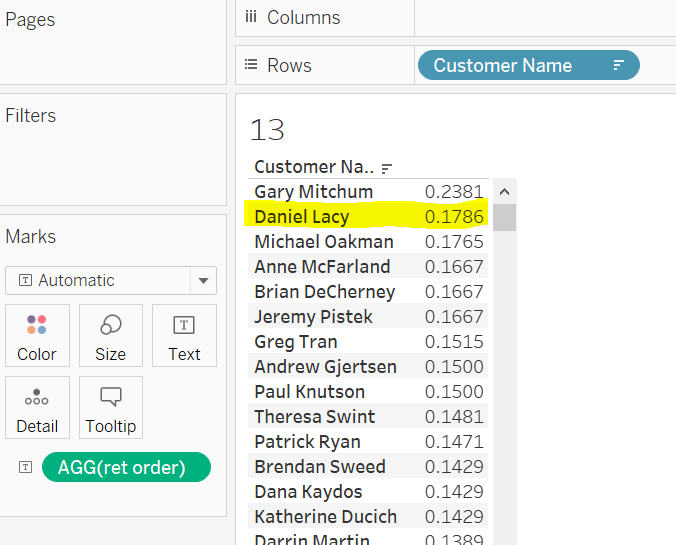Tableau Desktop Certified Associate Exam Practice Test
Connect to the "Kiva Loans - India" data source, which sector's funded amount is closest to the median of all the sectors?
Answer : B
Drop Sector to columns and Funded Amount to Rows.
From Analytics, drop the Median with Quartiles to your view or drop the reference line, select the Median.
Your view will look like this:
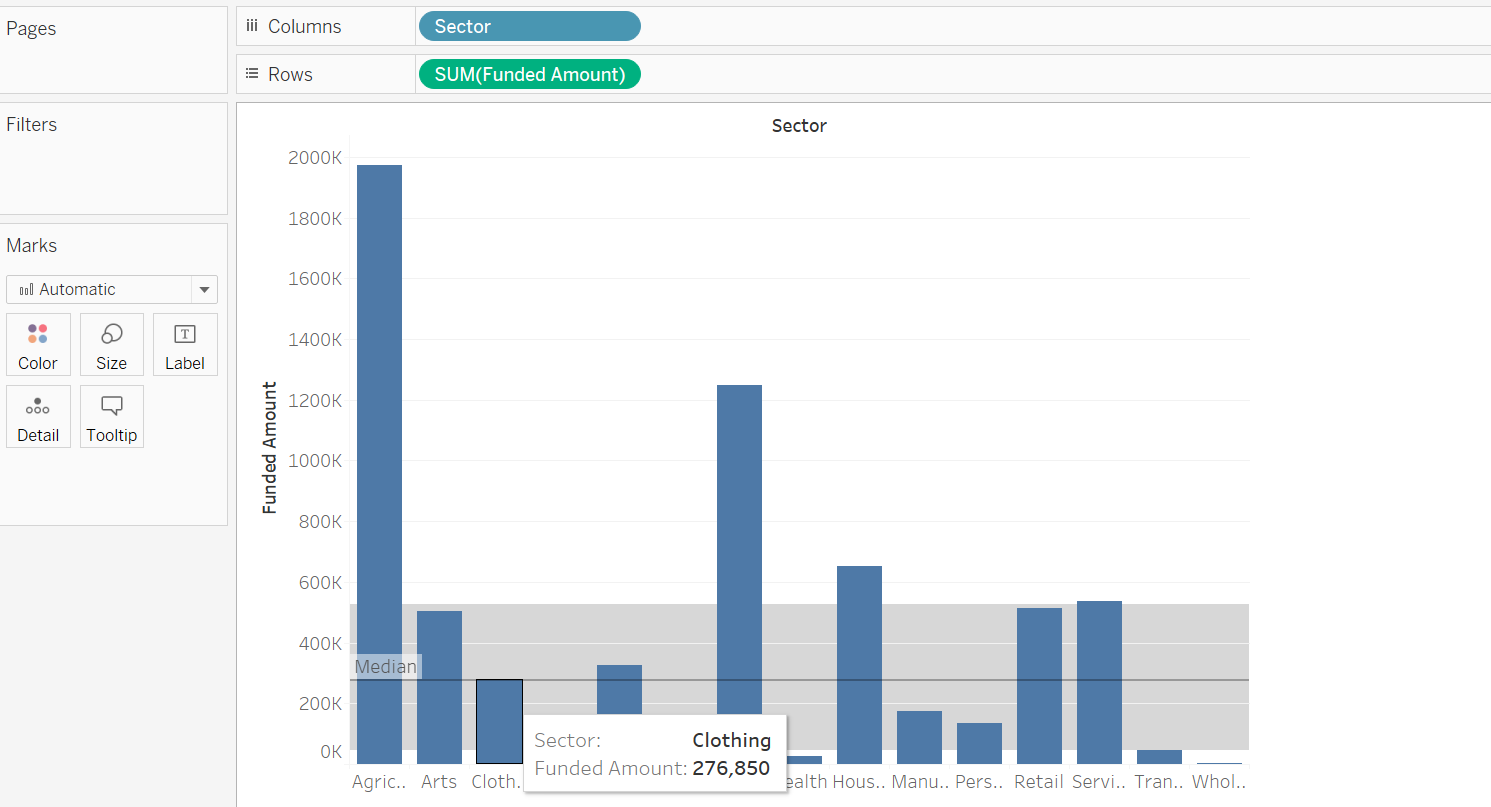
Here, the Clothing funded amount is exactly similar to the Median.
Connect to the "Significant Volcano Eruption" data source. Using the elevations field, create bins of size 1000 and find out in which bin has the most total deaths?
Answer : C
Select the 'Elevation' field from measures, and go to show me. Click on Histogram.
Right-Click on the 'Elevation (bin)' dimension and select Edit. Change the size of bins to 1000.
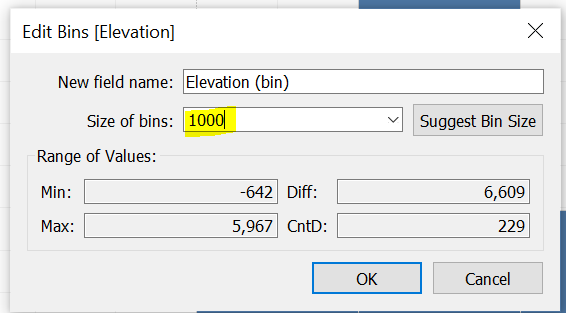
Drop the Total Death to Label.
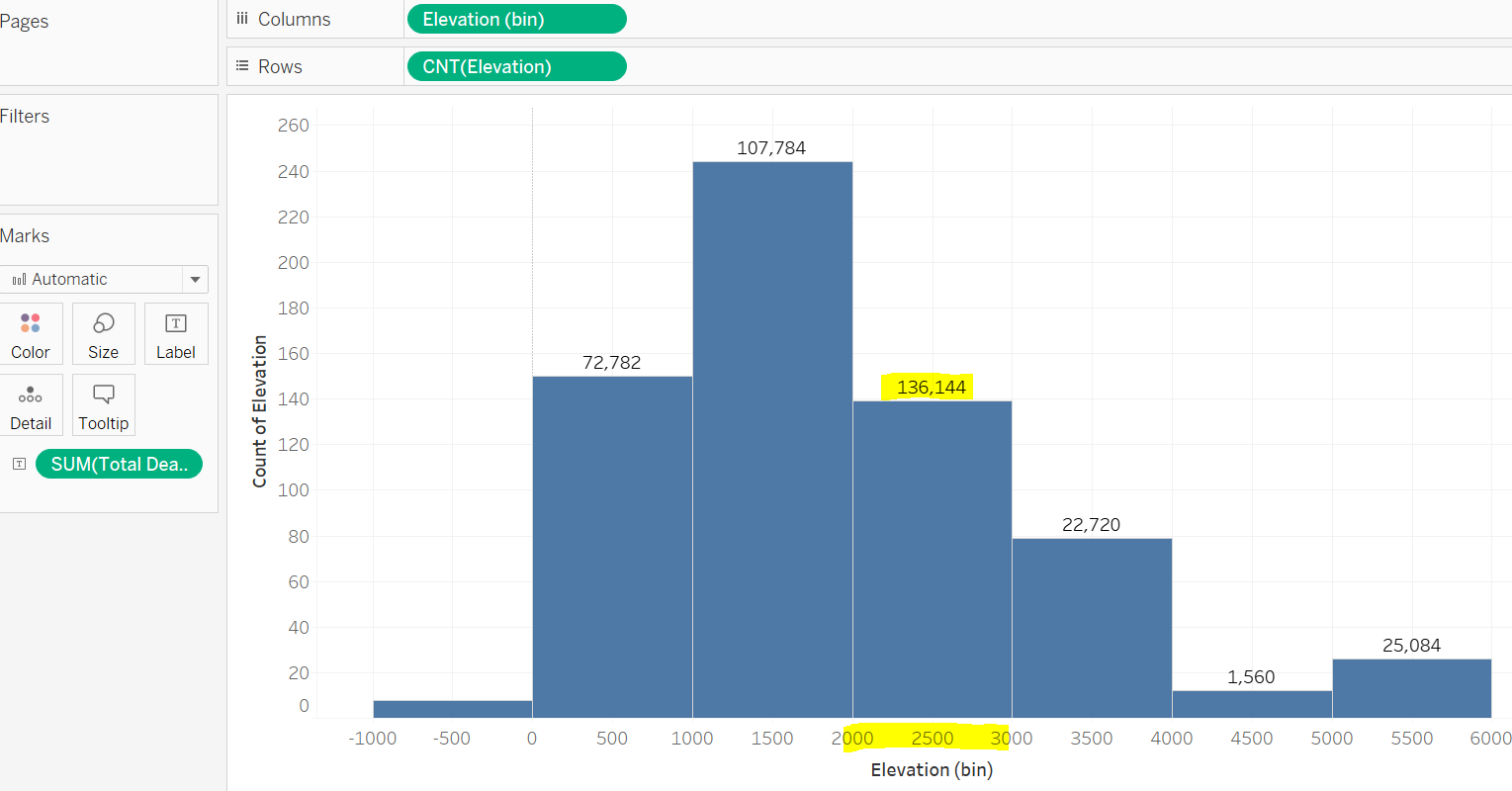
The total number of deaths reported in the bin of 2000.
Note that the lower limit is inclusive. So 2000 bin means 2000 to 2999.
Which LOD calculations can be used in Columns shelf to create this view?
Larger image
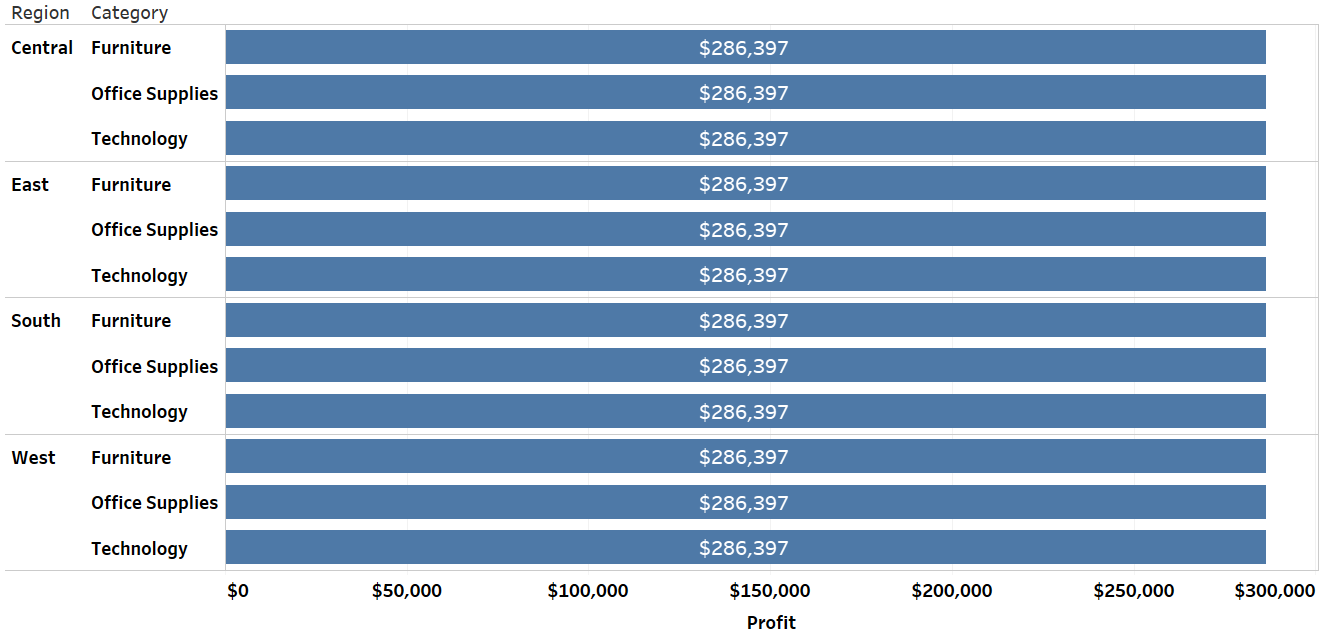
Answer : C, D
{ FIXED [Category] : SUM([Profit])} - It calculates the profit of each category. In our view, all the profits values are the same, so it is not the right answer.
{ FIXED [Region] : SUM([Profit])} - It calculates the profit of each region.
{SUM([Profit])} is equivalent to {FIXED : SUM([Profit])}. It is the table level scope, which means this is the profit of the entire dataset.
Tableau automatically associates continuous fields with categorical palettes.
Answer : B
Tableau automatically associates discrete fields with categorical palettes
Refer: https://help.tableau.com/current/pro/desktop/en-us/visual_best_practices.htm
Groups can be used in a calculated field.
Answer : A
Group can be used in a calculated field
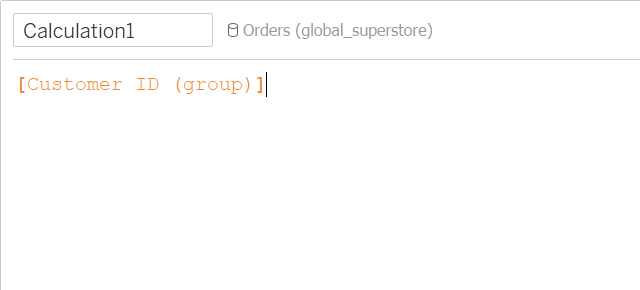
Connect to the "Global Superstore" data source and use the Orders table. Predict the profit of January 2016 using the profit data through December 2015. What is the profit value of January 2016?
Answer : A
Drop the Orders Date to the Columns shelf and change it to the Month Date Value and drop the profit to the rows shelf. Your view will look like this:
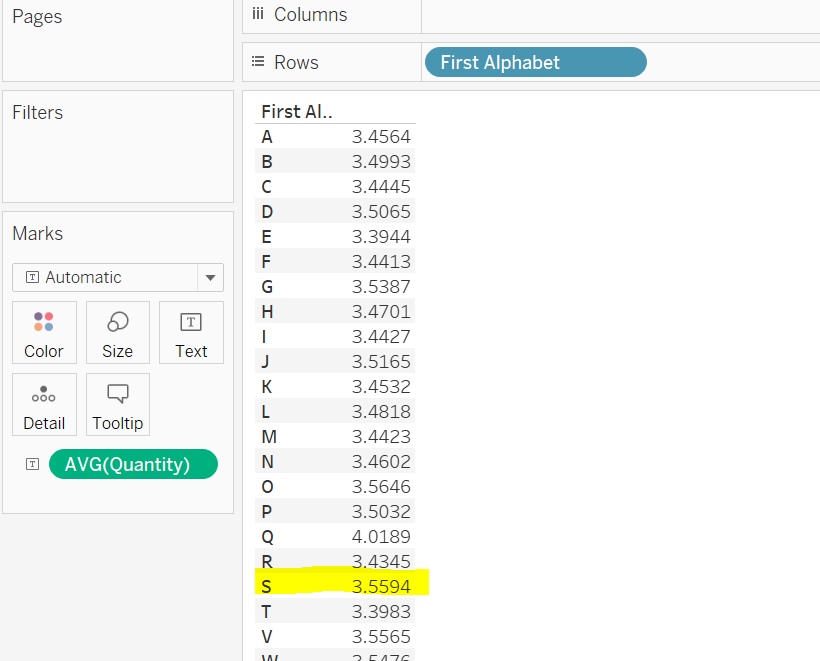
Go to the Analytics tab and drop the Forecast to your view.
Right-Click on the view, Select Forecast -> Forecast Options. Change the Ignore last to 0 months,
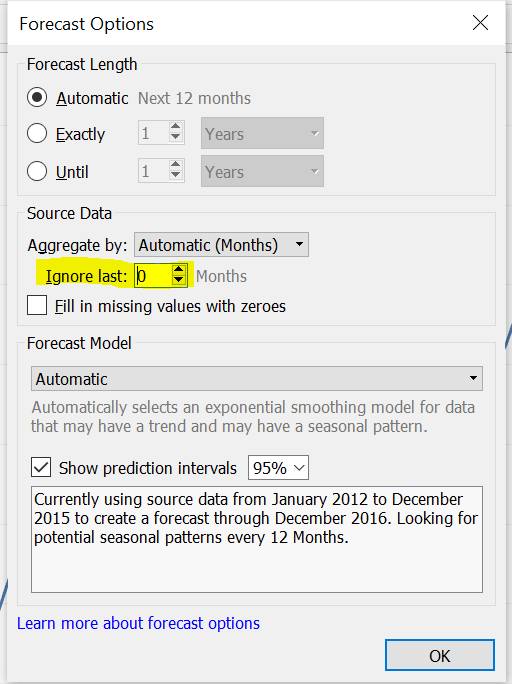
$35,152 is the correct answer.
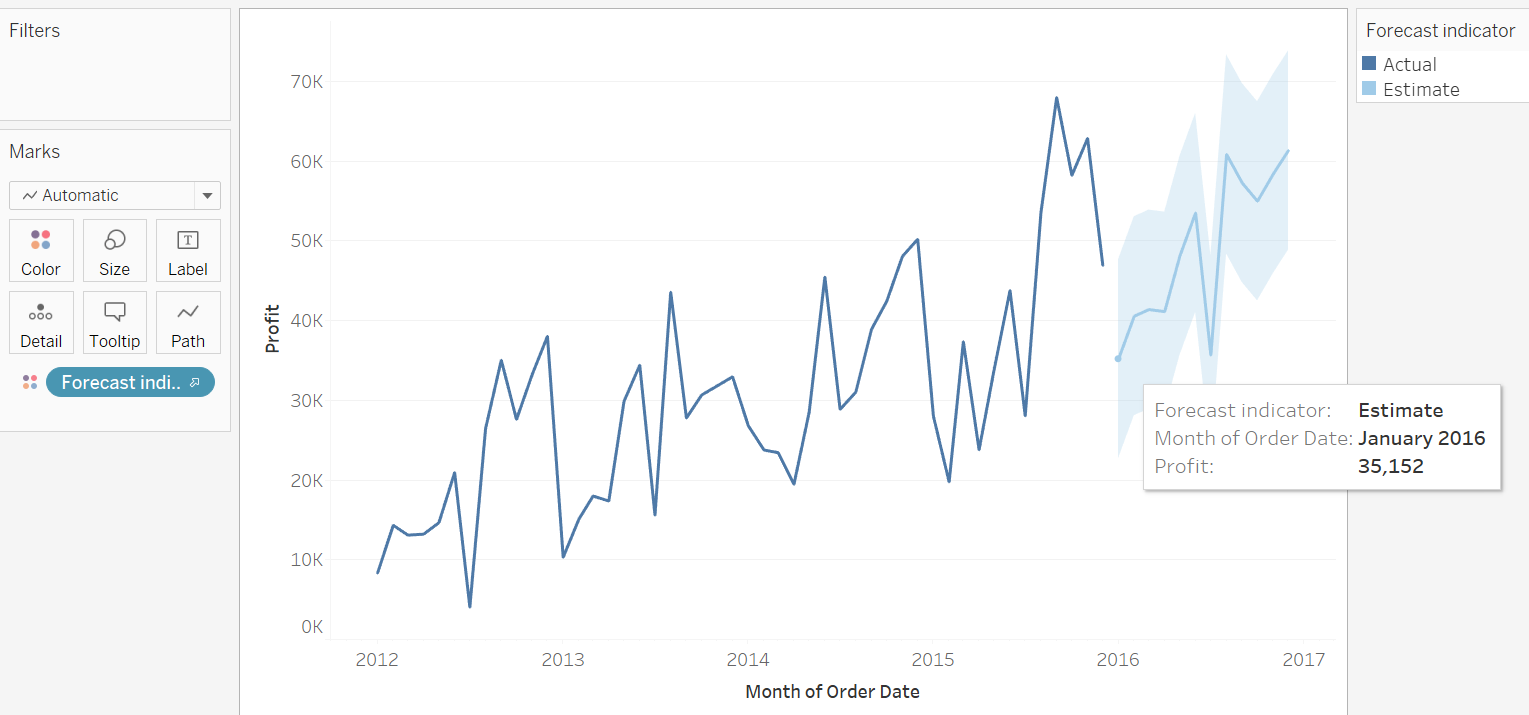
Connect to the "Global Superstore" data source and find out which 'Customer Name' (ignore the customer ID) has returned the highest percentage of his\her orders?
Answer : B
Left join the Orders and Returns table

Number of orders returned will be order ID from the returns table divide by total orders

Drop the customer name and ret order field in the view.
